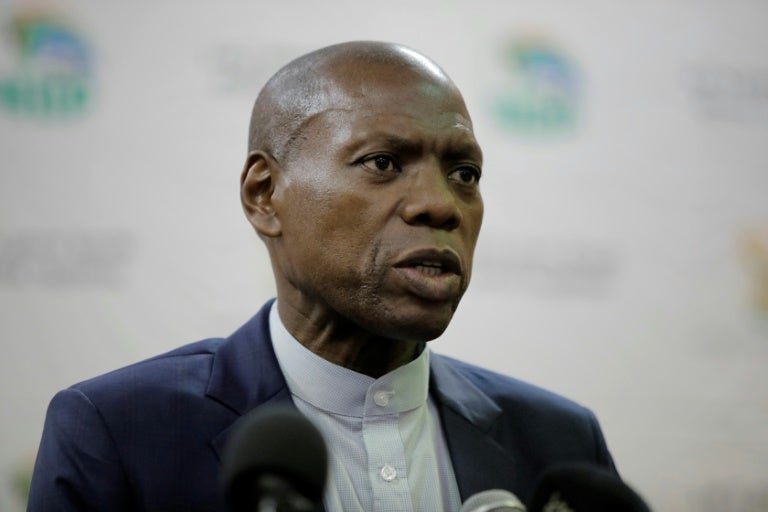Western Cape premier Alan Winde said he was concerned about an increase in Covid-19 cases in the province in the past week, but stressed it could not be classified as a resurgence.

Health Minister Dr Zweli Mkhize has remembered the more than 50,000 people who have lost their lives to Covid-19 during a webinar on 4 March 2021 hosted by the National Press Club and the GCIS. Picture: AFP/File/GUILLEM SARTORIO
Continued complacency and nonadherence to health protocols could have disastrous consequences for the South African economy and mark a setback in the country’s mammoth fight against the spread of Covid-19.
The caution comes against the background of the latest survey by the University of Johannesburg’s Centre for Social Change and the Development, Capable and Ethical State of the Human Sciences Research Council, which found that South Africans have experienced a growing fatigue and a greater complacency in health protocol compliance.
While ruling out any introduction of provincial lockdowns in response to a possible second wave during summer, which has seen superspreader events taking place, tourism department spokesperson Blessing Manale, said government was “worried about any form of complacency or noncompliance with the existing measures”.
“We do not foresee people revolting against lockdown rules, because it never happened before,” said Manale.
“We appreciate the need for the economy to reopen for international trade and for business to recover. We also believe that transnational, global and regional spread of the virus are matters of common cause to most nation states, their citizens and their businesses.
“Our call has been for all business establishments, their staff and customers to report noncompliance and to be honest in alerting authorities on any cases of noncompliance observed. Any measures and responses by government on the spread of the virus during this time will be a matter for the national command council – taken in the balanced interest of lives and livelihoods.”
In one of the strongest alert Level 1 concerns to be raised by government about growing levels of noncompliance to Covid-19 protocols, Health Minster Dr Zweli Mkhize, who is currently quarantined with his wife May, due to both of them being infected by the virus, this week warned of the virus resurgence.
“When we emphasise that the risk of a resurgence remains high, we do not do so to instil fear in you,” cautioned Mkhize.
“As government, we have a responsibility to alert you when we see concerning trends. It would be irresponsible of us to ignore small flames that we see redeveloping in some parts of the country. When we witnessed these trends a few months ago, it wasn’t long before we started experiencing a burden in our health system.
“Our epidemiological reports are showing that over the past seven days, there has been an increase of 9.1% in new cases. Similarly, over the past 14 days, there has been an increase of 10.7%.”
The Western Cape has been particularly hard hit and has recently recorded a 42% spike in new infections, the minister said.
Western Cape premier Alan Winde said he was concerned about an increase in Covid-19 cases in the province in the past week, but stressed it could not be classified as a resurgence.
“We are indeed very concerned about the relaxed behaviours, which we have seen. These may have led to this increase in cases and we are not the only province experiencing this as reflected in the national data.”
Winde said the provincial government’s seven day “rolling average” of new cases had indicated 1 757 new cases recorded in the week to 19 October versus 1 546 the previous week.
“This represents an increase of 13.65% in new cases in the seven-day period,” he said. “The department of health’s own definition of a resurgence is an increase of more than 20% in new cases over a seven-day period.”
For more news your way, download The Citizen’s app for iOS and Android.
Download our app





